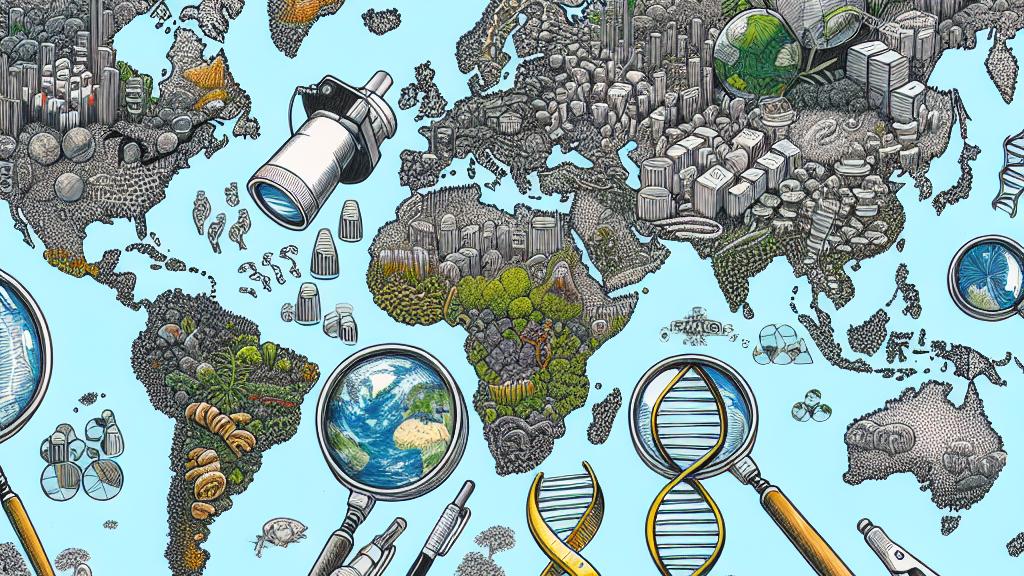The Need for Sequencing Resources in Biodiversity-Rich Areas: Addressing Global Genome Imbalances
Overview
- New research uncovers a critical imbalance in genomic resources around the globe.
- Tropical species, vital to ecosystems, are undergoing a drastic lack of representation in genomic research.
- Whole-genome sequencing is essential for shaping effective conservation strategies that protect our natural heritage.

Understanding the Imbalance
A recent, eye-opening study conducted by researchers from Montana State University and Universidad de los Andes has exposed a profound imbalance in genomic research that urgently needs addressing. The findings reveal that while a significant amount of genomic studies focus on species from high-latitude regions, biodiversity hotspots, especially in tropical areas, remain conspicuously understudied. For example, the Amazon rainforest boasts unparalleled levels of species richness, yet the genomic data available for these organisms is strikingly scarce. This gap in knowledge not only hinders our understanding of complex ecosystems but also jeopardizes vital conservation efforts aimed at safeguarding these irreplaceable resources for future generations.
The Consequences for Conservation
Whole-genome sequencing (WGS) plays a pivotal role in conservation genetics by providing critical insights into the genetic diversity and health of species. Astonishingly, only about 1-2% of conservation-centric genomic studies originate from the Global South, which is home to an incredible array of biodiversity. Take, for instance, the endangered Javan rhinoceros; its precarious position underscores the urgent need for comprehensive genetic data that is, unfortunately, largely missing. Furthermore, the uneven distribution of genomic resources means that policymakers may lack crucial information, leading to misdirected or insufficient conservation efforts. Thus, accessing advanced sequencing technologies and increasing funding for research in these neglected regions are not just preferable; they are essential to achieving viable conservation outcomes.
Taking Action to Bridge the Gap
To effectively bridge the genomic gap, targeted initiatives must not only enhance sequencing capabilities but also strengthen global collaboration among researchers. Exciting projects such as the Darwin Tree of Life and the African BioGenome Project showcase innovative approaches to cataloging species and tracking genetic variation through the power of WGS. Imagine the potential for conservation when scientists can analyze genetic material from local plant species to inform tailored reforestation strategies that ensure biodiversity thrives! By prioritizing the development of high-quality reference genomes through cutting-edge sequencing technologies, we can comprehensively document the rich genetic landscape of our planet, thus empowering impactful conservation efforts that will protect Earth's stunning biodiversity for generations to come.

Loading...